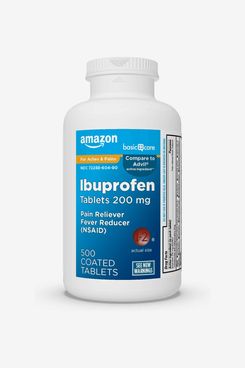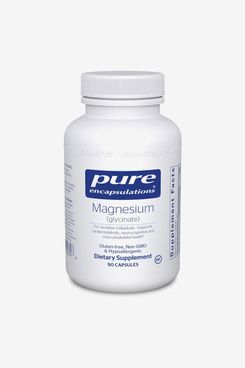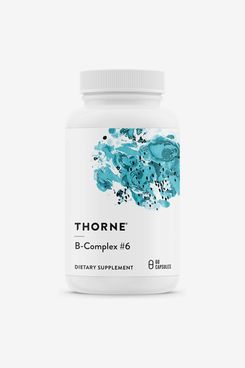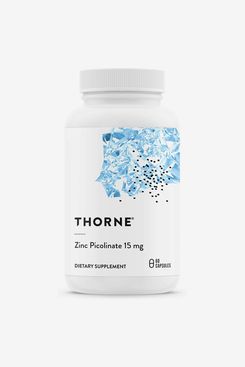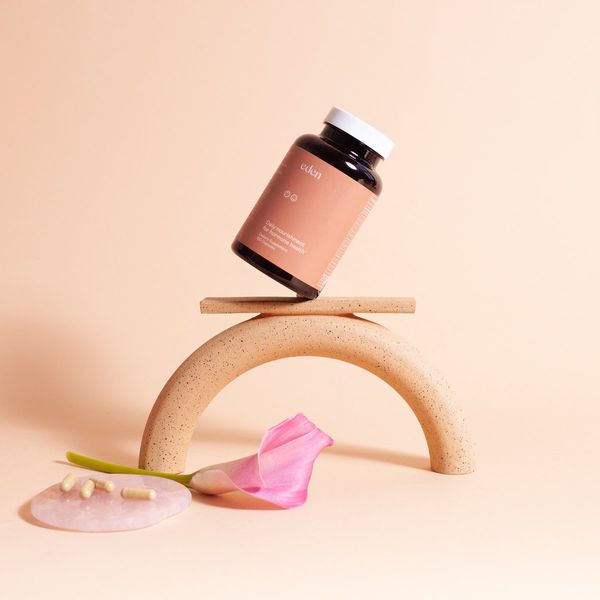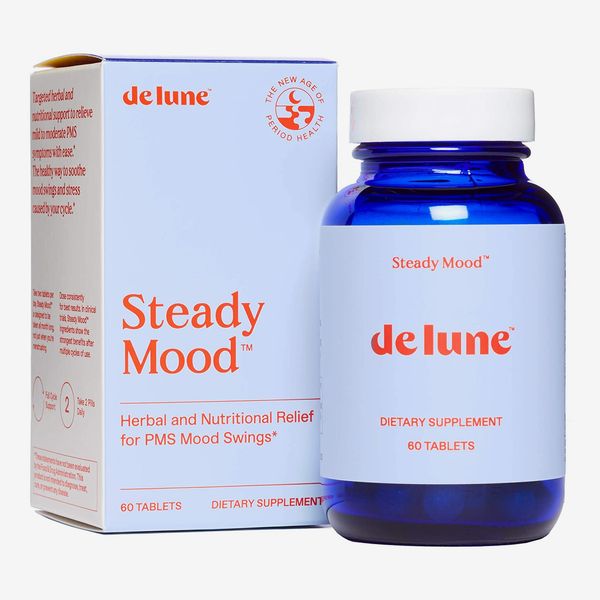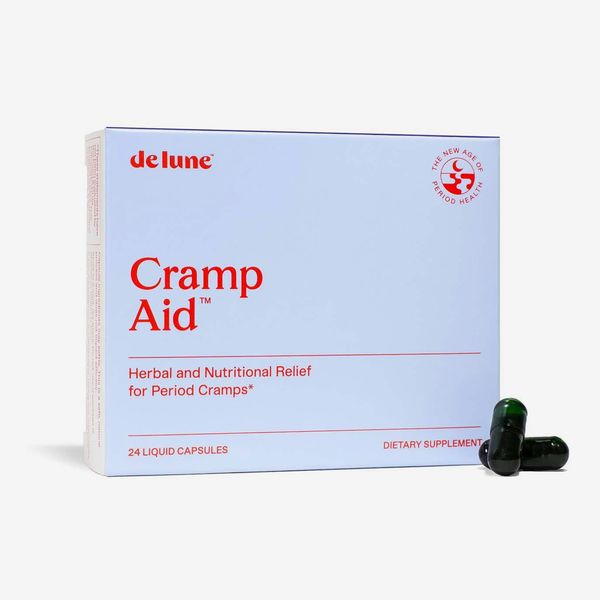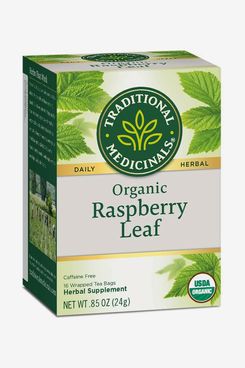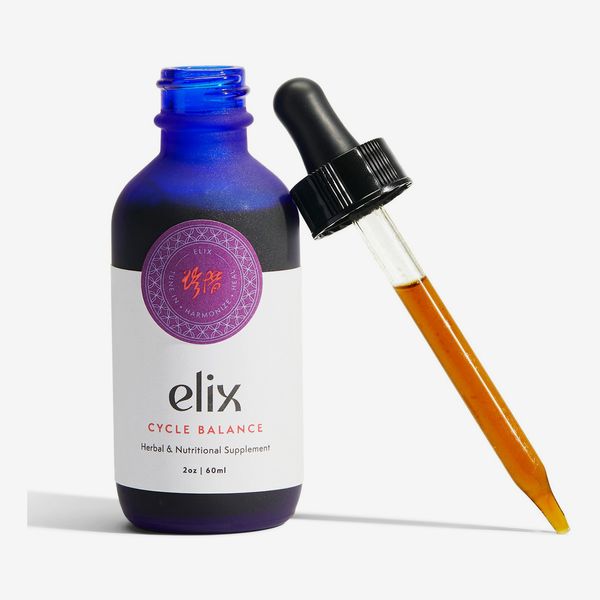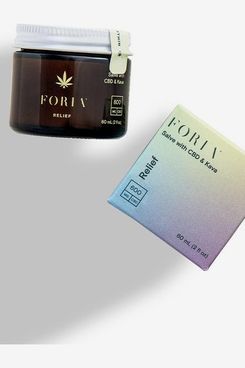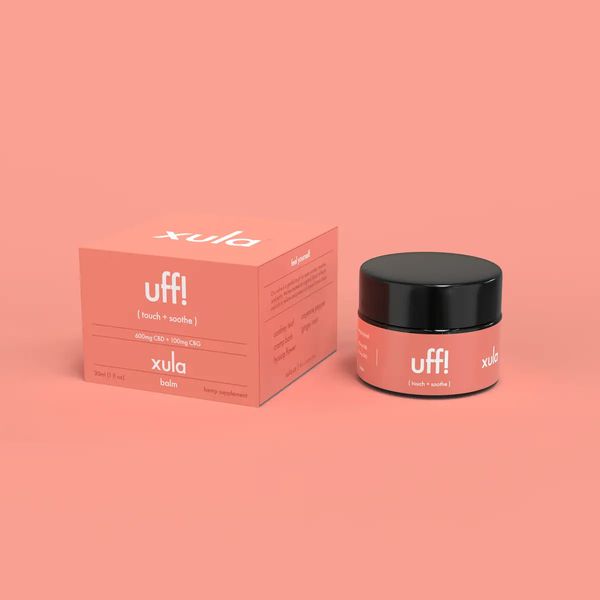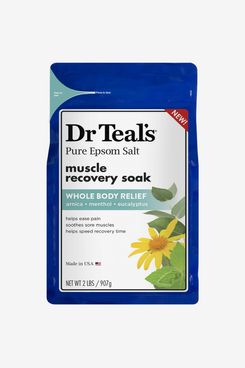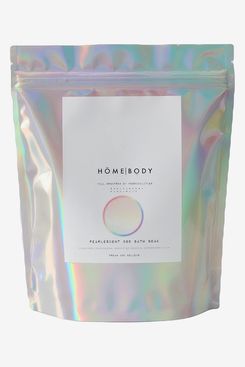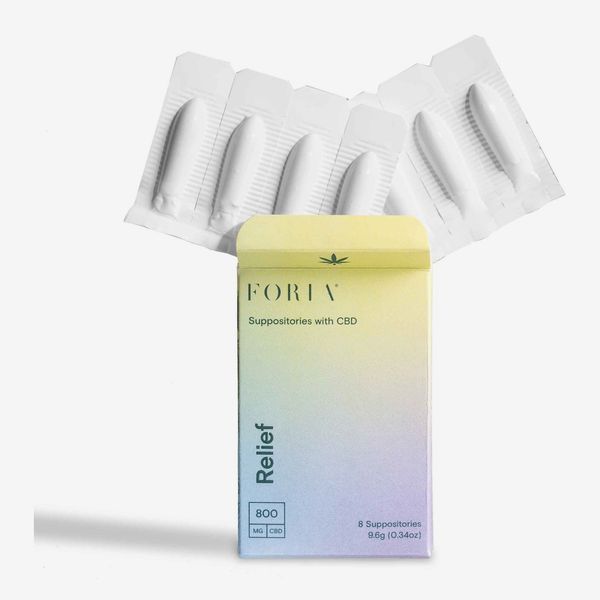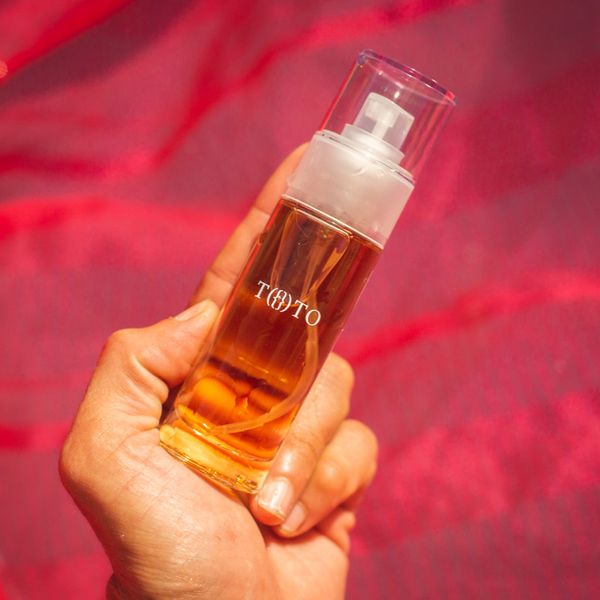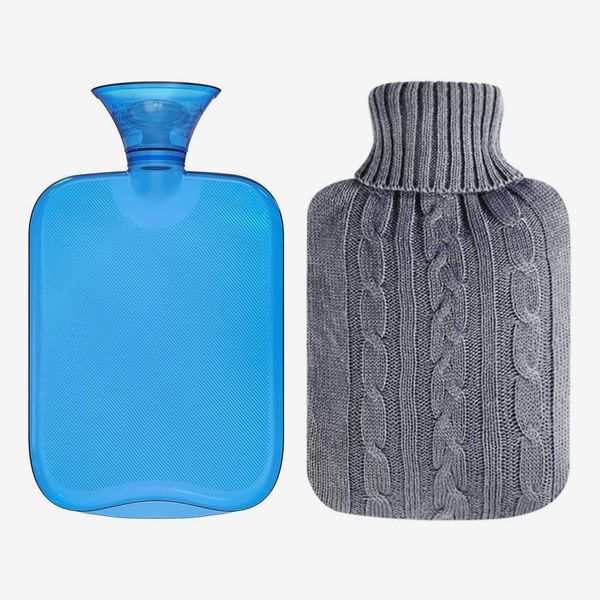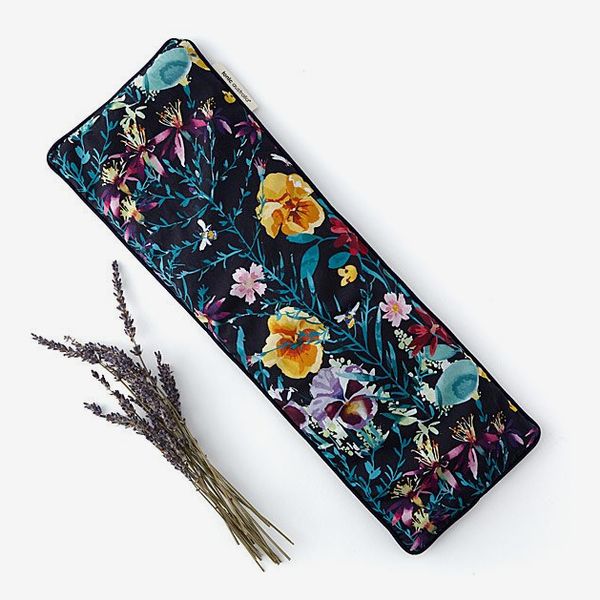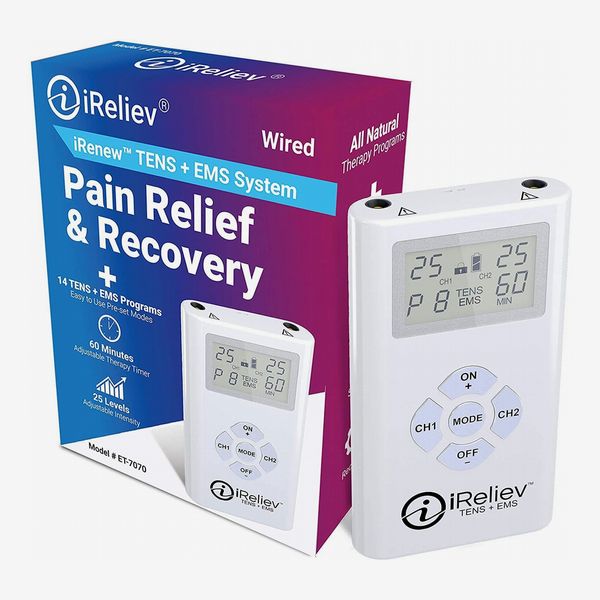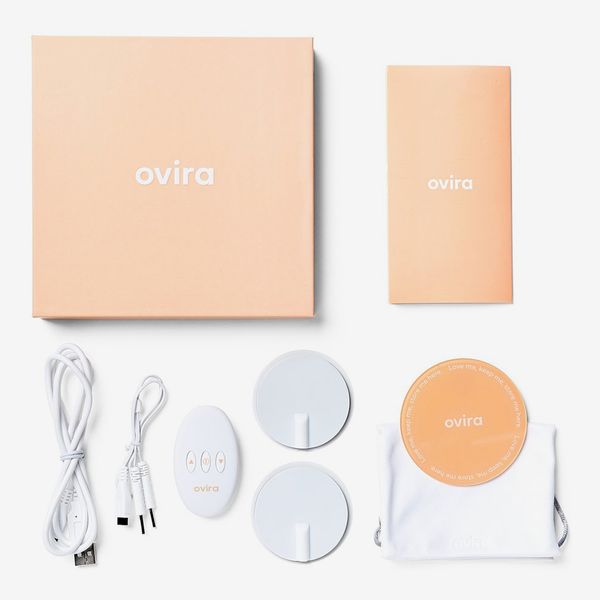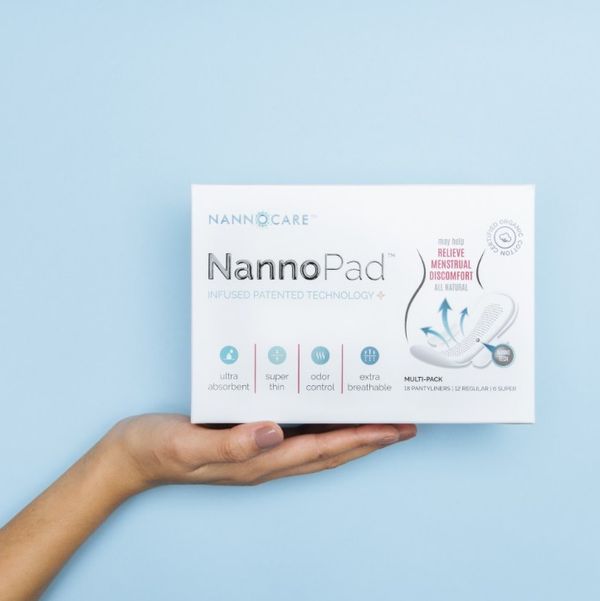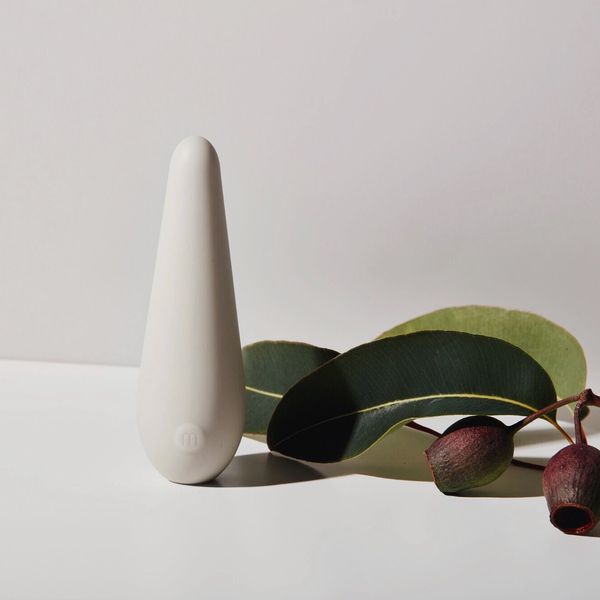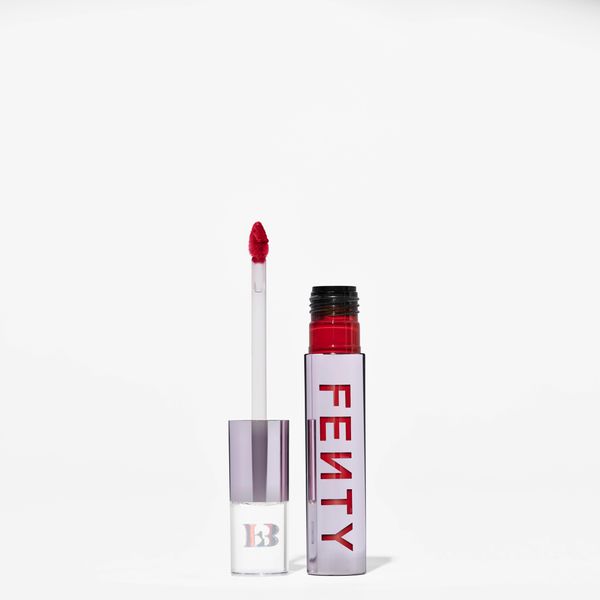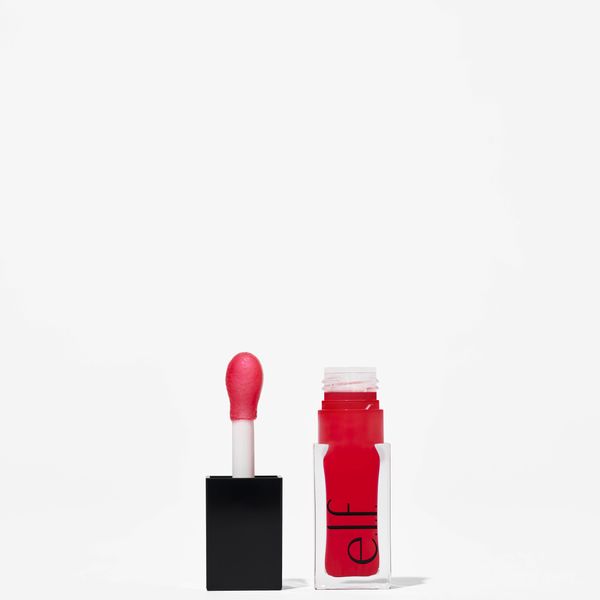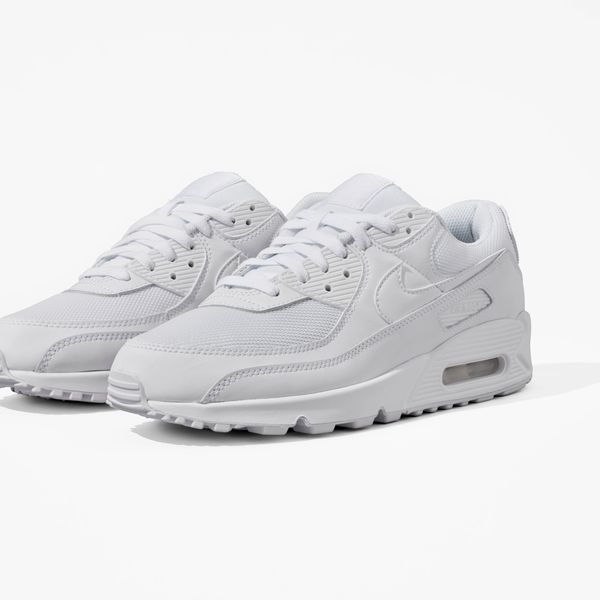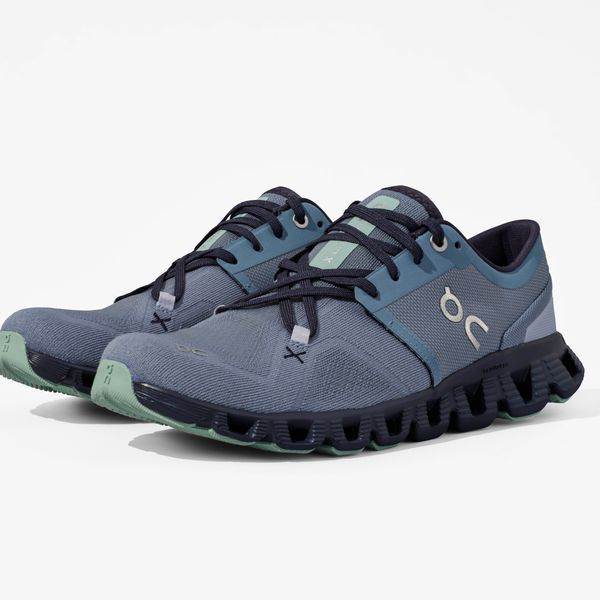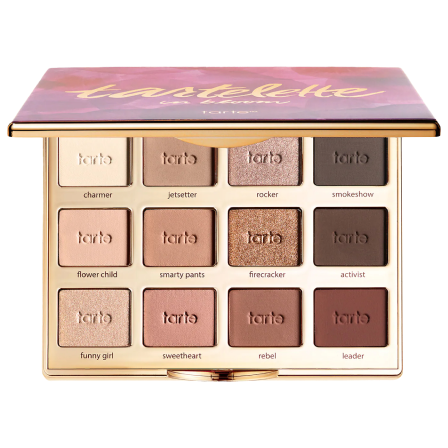
Those who menstruate know that periods often come with a whole slew of unwanted symptoms, from headaches to nausea to — perhaps most commonly — cramping. Dysmenorrhea, the medical term for period cramps, is a result of “the normal inflammatory process that occurs as a result of ovulation, the release of a mature egg from the ovary,” explains Dr. Lynae Brayboy, the chief medical officer at period-tracker app Clue. This process is typically associated with the uterus contracting each month to shed its lining when a pregnancy does not occur, and that motion is felt right above the pubic bone, the upper and inner thighs, and the back.
This process, and the pain associated with it, can’t be completely stopped without a trip to the doctor’s office and a prescription for hormonal birth control (and sometimes that doesn’t even take care of the problem). But there are more accessible options for pain relief. We talked to Brayboy and four other health professionals and experts about some of the over-the-counter remedies they recommend. It’s important to note that all of our experts encourage having an open dialogue about your period with a health-care provider. “The period is the fifth vital sign,” says Devon Klauck, the lead nurse practitioner at women’s health clinic Tia. “It’s really an indicator of your overall health.” If your period is abnormally heavy or painful, causing you to miss out on work or daily activities, it’s especially crucial to talk to a doctor, says Klauck. “You shouldn’t be missing out on life because of your period pain.”
Ahead, find 21 over-the-counter period-cramp remedies for pain management, including everything from the ibuprofen you likely already have in your medicine cabinet to CBD lube.
OTC Painkillers
Getting the most traditional remedy out of the way first, we have nonsteroidal anti-inflammatory drugs (or NSAIDs, for short). These are either ibuprofen, like Advil or Motrin, or naproxen, such as Aleve. Almost everyone we spoke to agree that these will provide some level of relief because they directly target the problem. “They block prostaglandins, which are the primary compounds that cause cramping and pain during the period,” says Klauck. She prefers ibuprofen over Tylenol or aspirin, which do not target the prostaglandins. In fact, “aspirin actually reduces blood clotting, so it could cause a period to be a little bit heavier,” she adds. Klauck isn’t a fan of Midol either. Despite being targeted to people with periods, it’s not an NSAID, she says, plus it contains caffeine and a diuretic, which can lead to dehydration.
When taking an NSAID, Dr. Rashmi Kudesia, a medical adviser for online birth-control company SimpleHealth, says you can take up to 800 milligrams every eight hours, but she does not advise going above that. “If somebody knows that they have really bad cramps and wants to kind of knock it out, then that’s a pretty high dose,” she says. However, if it’s your first time taking ibuprofen, she recommends starting with 400 or 600 milligrams. And you don’t have to wait until you’re already in pain to take something. Tamandra Morgan, a second-year resident physician at the University of California San Francisco, says, “Taking NSAIDs several days in advance of your cycle can help alleviate and reduce associated cramping.”
Oral Supplements
Supplements are Klauck’s go-to when managing period-cramp pain. “There’s really not anyone whom I wouldn’t recommend magnesium to,” she says, explaining that it’s good for a number of things, including sleep quality, muscle relaxation, and pain relief. As it pertains to periods, “magnesium is really great for reducing prostaglandins, which are phospholipid components that are secreted by tissues and cause that cramping and pain,” she says. Klauck specifically recommends magnesium with glycinate because while “some forms of magnesium can cause GI distress or diarrhea,” glycinate is less likely to cause side effects.
Vitamin B is something both Klauck and Kudesia say is essential. Klauck thinks it’s an especially beneficial supplement for vegans and vegetarians who might be deficient in vitamin B12 due to their diet. B12, she adds, can ease mood changes that can happen before and during your cycle. “It helps boost neurotransmitters, like serotonin, which is very important for a balanced mood,” she says.
Klauck is also a fan of zinc because, like magnesium, it regulates prostaglandins. “It works to inhibit the prostaglandins that cause a lot of the pain associated with periods and inflammation, and it also supports normal production of testosterone, which in female health is important for mood and libido,” she says.
Most of the supplements mentioned thus far don’t necessarily need to be taken daily, but rather can be used as needed or during your cycle. However, this supplement — which Klauck calls “my absolute favorite” — should be used daily. It’s an all-in-one female multivitamin, probiotic, and herbal support supplement, and in addition to vitamin B and zinc, this also has “vitamin D, which is really important for immunity,” she says. Plus, it has adaptogens and antioxidants, “which are important for anti-inflammation,” she adds, “and it has an herbal supplement called vitex, or chasteberry, which I recommend either on its own or in the Eden supplement.” Chasteberry can reduce the production of prolactin, which contributes to period pain; it can also alleviate breast pain associated with periods and help with hormonal acne. It’s important to note that there is some research that indicates chasteberry might affect your oral contraceptive, so you should talk to your doctor before taking it.
If you are on the Pill, Klauck thinks this De Lune supplement is a good alternative. It’s otherwise similar to HelloEden, but doesn’t have chasteberry. What it does have is “magnesium, zinc, and B6, as well as rhodiola, which is an adaptogenic herb that can help with anxiety, fatigue, and depression,” she says, adding that the acupuncturist at Tia recommends it a lot.
While the De Lune’s Steady Mood is designed to be taken as a daily vitamin, this is specifically formulated for period cramps. It has ginger and calendula for fighting inflammation, as well as dong quai and fenugreek, which are said to soothe uterine muscles. Kudesia specifically recommends it for its zinc and vitamin B; she notes that there are a lot of period supplements with vitamin B, but likes that De Lune has scientific papers cited on its website. “To me, that helps kind of lead to the scientific credibility of some of this stuff, so I appreciate that,” she says.
If you’re looking for an alternative to swallowing pills, tea is an easy way to get some relief. “We keep Traditional Medicinals Raspberry Leaf Tea at Tia for patients to have after exams or procedures that might cause cramping,” Klauck says. “It just has a lot of nutrients and antioxidants, and it’s warm — warm is always what you want to go for when it comes to period cramps.”
Lara Parker, the deputy director at BuzzFeed and author of Vagina Problems, was introduced to these Chinese healing herbs over a year ago. Parker suffers from daily pelvic pain, but says her endometriosis and adenomyosis manifest as particularly bad periods. She experienced negative side effects from prescription painkillers and decided to seek out more natural remedies — and then she found Elix. After a very thorough questionnaire about your period and overall health, Elix develops a personalized liquid supplement based on your needs. They arrive in a little dropper bottle and ship to you monthly — either every 21, 28, or 32 days — to match your cycle. “I just mix them with water,” she says, noting that it’s like a tincture. “I do that in the five to seven days leading up to my period every month, and I think that has helped my pain tremendously.”
Topicals
In addition to things you can take orally, our experts recommend a number of things to rub, scrub, and soak in during that time of the month. Klauck says the acupuncturist at Tia recommends this CBD salve a lot. “You can put it anywhere where you are having pain,” she says, like your lower abdomen and lower back.
CBD is something else Parker relies on to manage her pain. She started using it after discovering that smoking weed gave her a lot of relief — which, while good for her period pain, wasn’t great for her productivity. “That led me down this journey of finding different products and discovering that there were actually products in the cannabis world that were made specifically for people experiencing a period,” she says. “If I have to go to work and I don’t want to be stoned out of my gourd, I can just use the CBD balm.” This one from Black- and Latinx-owned brand Xula is one of her favorites. In addition to CBD, “it also has a couple of other herbs that are supposed to be good for that time of the month,” she says. She likes Papa & Barkley CBD Balm and Kush Queen Melt lotion too.
Klauck recommends Epsom-salt baths, which “have the muscle-relaxing benefits of heat and magnesium,” she says. She especially likes Dr. Teal’s Whole Body Relief because it contains arnica, which is a good pain reliever. This specific Dr. Teal’s formula is harder to find and more expensive than other Epsom salts, but no matter which version you go with, you’ll still get the magnesium benefits.
Parker is a fan of a good soak, too. “Taking a hot CBD bath, or even an ‘Epsom salt with lavender’ bath, when you’re on your period is heavenly for me, and just sort of, like, letting yourself bleed out in the tub and not worry about anything feels nice,” she says. In addition to CBD, this bath soak contains magnesium and arnica like the Dr. Teal’s above.
Vaginal Supplements
Both Klauck and Parker recommend these suppositories, which are packed with CBD and made for local muscular relaxation and inflammation relief. They can be inserted vaginally or rectally, depending on where you are experiencing pain. Klauck likes them because they go right to the source, noting “they are absorbed by the vaginal walls and are a great way to deliver a relief product without having to take something orally.” Parker finds this works best when used “a couple of days prior to my period starting.” Not only has she had “great success” with it, but “it also feels nice, and it smells nice.”
Parker says this is technically a CBD lube, but it’s something she uses all the time for period pain because it reduces inflammation and pain in the pelvic area. “I actually just use it on my vulva just for daily maintenance and upkeep because I feel like, during my period, my vulva goes through a lot of trauma, and this is just a very soothing lubricant that I can use directly on my labia, and it feels really nice,” she says.
Devices
Heat is another very traditional period-cramp remedy — and that’s because it works. Four of the experts we talked to recommended some form of heating pad. Of this hot-water bottle, Klauck says, “I’ve lent it out to my female friends so much that now in our group text we just refer to it as Harold.” It’s super simple to use, she adds: “You just fill it up with water from a tea kettle and it stays hot for a long time. You can put it on your back or your lower abdomen, and you can just put it under a warm blanket and it’ll keep everything warm.” In a pinch, Kudesia says just a towel soaked in warm water will do the trick.
Parker’s preferred vehicle for heat comes in the form of a rice-filled heating pad. “Something about the weight of the rice is just heavenly, especially during my period,” she says, adding that it’s “so much better than just your average electric heating pad or hot-water bottle.” Heat this one up in the microwave for a couple of minutes, and then it’ll be ready to use.
[Editor’s note: This heating pad is currently on back order, but is still available for purchase. It’s expected to ship in early November.]
Klauck mentions transcutaneous electrical nerve stimulation devices, or TENS units, as being particularly helpful. “We recommend those to lots of people with endometriosis who have really severely painful periods,” she says. “Basically, what it does is deliver small, painless electrical impulses that flood the nervous system, which reduces its ability to transmit pain signals. So you stick these patches on your lower abdomen and lower back, and it delivers those little electrical impulses.” Parker says she uses this for bad cramping and pelvic pain, and that “it helps a lot.” It’s a bit of an investment, but this unit can be used anywhere for any type of pain.
Ovira makes a TENS unit specifically targeted at menstruation pain. Klauck notes that she hasn’t personally used this one, but she appreciates how small it is. “You could take it to work and just have it under your clothes because it’s portable; it’s easy to move around,” she says. She also appreciates that you can easily reorder the Sticky Gels that are used to attach the patches.
Kudesia introduced us to these menstrual pads that relieve pain while absorbing period blood. They utilize “nanogenic technology” that is said to work with your body to reduce discomfort. They’re made of 100 percent cotton and claim to reduce odor too.
If you feel as though you’ve tried everything to get rid of cramps, consider masturbation. “Masturbation is really, really great for period pain. It has many benefits,” says Klauck. “It increases blood flow and releases endorphins, which relieve stress and improve mood. Orgasm leads to a release of oxytocin, which can lower stress and anxiety, and provide pain relief from cramping or headaches. It can even lead to better sleep through a kind of a sedation effect as the oxytocin leaves the system.” Klauck likes this Strategist-approved vibrator because it’s portable, pretty, and has a long battery life.
The Strategist is designed to surface the most useful, expert recommendations for things to buy across the vast e-commerce landscape. Some of our latest conquests include the best acne treatments, rolling luggage, pillows for side sleepers, natural anxiety remedies, and bath towels. We update links when possible, but note that deals can expire and all prices are subject to change.

